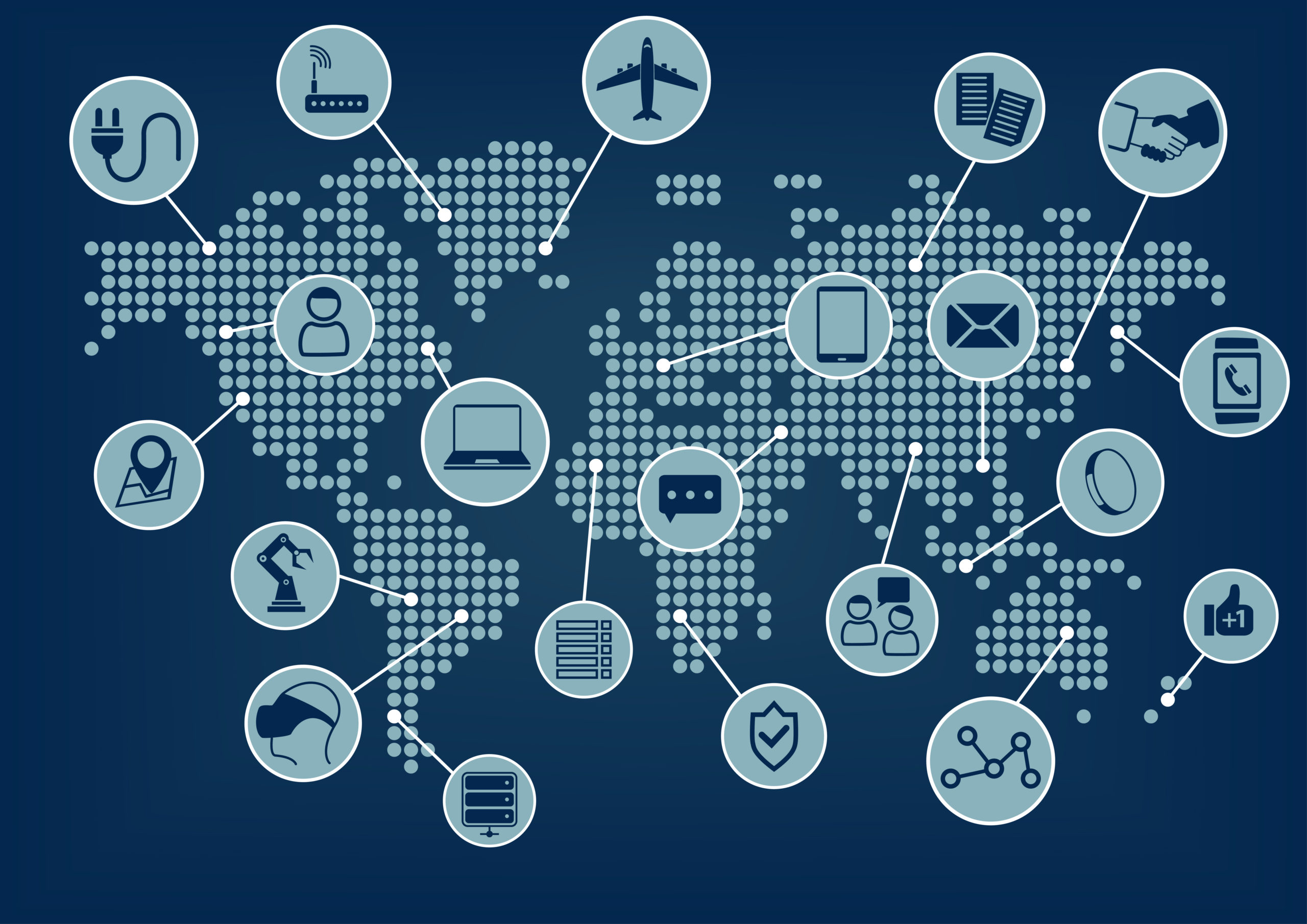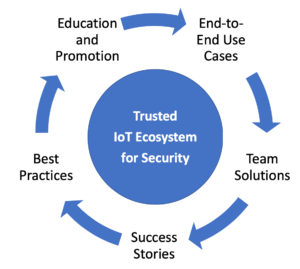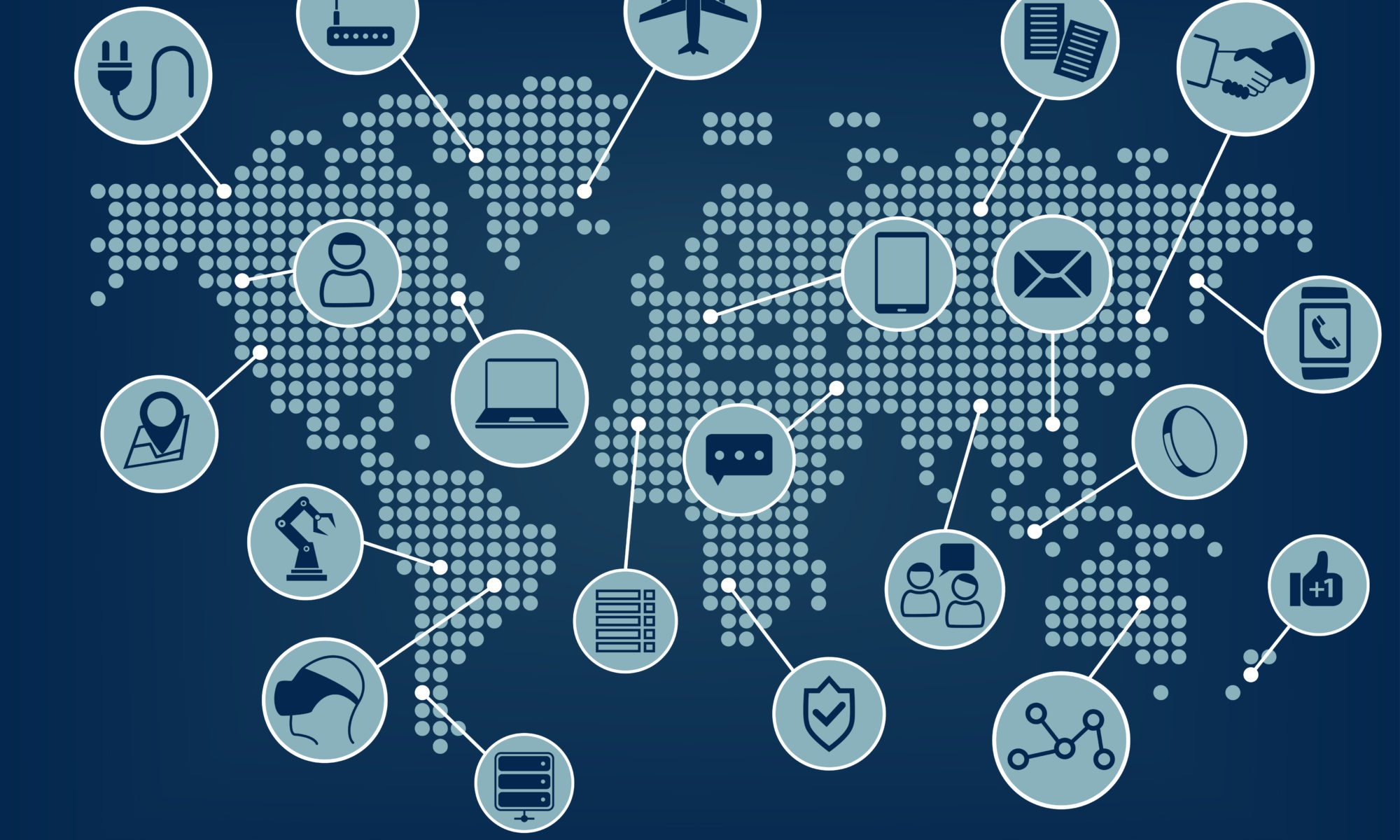
There’s a lot to keep you awake at night these days. If you live in California, it’s wildfires and unbreathable air. If you live on planet Earth, it’s COVID-19. And if you’re part of the value chain for IoT, it’s the security and robustness of the silicon and software fabric that connects our world. This fabric connects everything, from autonomous vehicles to the power grid to the world economy. And it’s vulnerable. A compromised piece of hardware or software can cause real damage and potential loss of life. This extends to the cloud and the data used for AI/ML. This is why the Global Semiconductor Alliance (GSA) created the collaborative Trusted IoT Ecosystem for Security (TIES) Group with Mentor/Siemens as Board Chair with board members NXP, Rambus, Microsoft and Arm.
In my opinion, creating a trusted, secure ecosystem to source the silicon and software for our current and future interconnected world is not an optional item. Rather it is a requirement for continued innovation, robust growth and a safe future. Let’s start with a look at one of the founders of this movement along with the GSA.
The Mentor/Siemens Vision
Siemens is a huge multi-national technology corporation. Electrification, automation and digitization (EAD) is a central theme for much of what Siemens does. Mentor now lives in Siemens Digital Industries, creating near-perfect synergy to tackle the challenges of the IoT ecosystem. A recent article entitled A Stroke of Genius That Saved the Day: Siemens’ Purchase of Mentor lays out the details of the Mentor synergy.
At Embedded World in 2019, Intel and Siemens delivered a joint showcase for Intel® Secure Device Onboard (SDO) and SIMATIC IPCs. Using Siemens MindSphere®, which is an industrial IoT as a service solution along with Intel® Secure Device Onboard provisioning service, a reduced cost and more robust system enabling a zero-touch mass deployment of devices was demonstrated.
This, in turn led to a three-way collaboration for a proof of concept project using Intel SDO with the Infineon TPM chip as root-of-trust for onboarding SIMATIC IPCs to MindSphere or other platforms. This demonstrates how a trusted ecosystem collaboration can be created to deliver end-to-end solutions across a variety of domains in the IoT value chain.
Secure Device Onboard (SDO) is now open source software via a Linux Foundation Edge project, and SDO technology is now migrating into an industry standard as part of a FIDO Alliance IoT initiative. A draft spec is now publicly available.
The GSA Reach
Addressing the challenges of creating a trusted IoT ecosystem requires a lot of companies to align. System OEMs, software development, design, IP, manufacturing, assembly and test along with cloud and edge applications are all involved. The problem has substantial scale. It turns out the GSA is a near perfect catalyst to bring all the key stakeholders together in one unified, focused setting. Its members represent 70% of the $450B+ semiconductor industry and include fundamental technology companies representing all major segments of the semiconductor ecosystem.
The Plan
Recently, I had a chance to chat with Tom Katsioulas. Tom is the Board Chair of the GSA TIES Group and the Head of TrustChain at Mentor, a Siemens Business. He has been working with the GSA to create the vision, charter and process to start tackling the work needed to create a trusted IoT ecosystem. Tom explained that a plan has been developed and is being circulated to the GSA membership.
This is very encouraging. With the right support, momentum from positive results and addition of new members from the broader system community, the GSA can expand its footprint and help solve a very important problem in the chip-to-cloud IoT value chain. New ecosystem members, from OEMs, to IC and PCB, to embedded system, to device, to edge applications, to digital twins are all needed.
Tom explained that the objective of this work is to promote trusted end-to-end solutions in the IoT value chain that accelerate the adoption, growth and field use of connected chips, devices, systems and IoT applications. Enabling recurring services revenue streams and high value business models is also a focus. Ambitious goals for sure, but ones that have the significant vision and support from the GSA TIES Group.
 The operating model for the program is illustrated by the figure on the right. The process builds on itself with continued successful application to a growing list of end-to-end use cases that drive collaborative solutions and guidelines in the IoT value chain.
The operating model for the program is illustrated by the figure on the right. The process builds on itself with continued successful application to a growing list of end-to-end use cases that drive collaborative solutions and guidelines in the IoT value chain.
The output of these activities will be provided to the relevant parties (including standards organizations) for potential action and implementation. Tom explained that there are organizations usually in need of a well-defined problem statement with clear goals, use cases, examples and a group of companies to support the work. The GSA Trusted IoT Ecosystem Security Group can provide all this and promote any best practices developed.
Call to Action
Ecosystems capture higher value than sum of members acting independently, and trust is essential for collaboration. A number of companies are committing to contribute content for the effort. If you are a member of the GSA, you will have the opportunity to participate in this important initiative. If you’re not a GSA member, you can still participate. Either way, get involved and contribute. You may well be helping to save the planet.
You can learn more about this Trusted IoT Ecosystem for Security here. You can also contact Shungo Saito: SSaito@gsaglobal.org. Shungo is the director, program development at GSA.
Also Read:
Emulation as a Service Benefits New AI Chip
Creating Analog PLL IP for TSMC 5nm and 3nm
Share this post via:






Comments
2 Replies to “Trusted IoT Ecosystem for Security – Created by the GSA and Chaired by Mentor/Siemens”
You must register or log in to view/post comments.